Art director Adam Morton-Delaney’s 23 alternative New Year’s resolutions for 2023
Every January comes with it the pressure to create and stick to resolutions. But the reality of how a year is shaping up to be can be quite different to how you imagined it might – and it can be a downer when you’re not on track to achieve them or realise they’re just a little too ambitious. But Adam Morton-Delaney, art director at KesselsKramer London, believes it doesn’t have to be this way. Rebelling against the notion of goal-oriented resolutions, Adam shares with us the 23 ‘alternative’ resolutions he’s working towards to stress less and reduce creative anxiety.
The good news is that my heart is full after some long-overdue time up North with friends and family. The less good news is that now I’m sat back at my desk in a bit of a grump. January is here and brings with it very little in the form of things to do or look forward to. In other words: it’s giving me a lot of time to think.
This year, I’ve decided to be a little more realistic with my aims – and in doing so, focus them on my creative life. I’m sharing my ‘notes to self’ on how I want to try to work smarter, stress less and reduce my creative anxiety for 2023. Hopefully there are a couple of tips and tricks here that you might also find helpful.
Whether 2023 throws some tricky creative problems your way, or provides you with some exciting creative opportunities – or, let’s face it, probably both! – I hope this list will act as a useful point of reference to check in on along the way, and that it helps you enjoy the ride a little more. Good luck ✌️
Adam’s 23 alternative New Year’s resolutions
1. Focus on you
Of course, you should try to be more empathetic and help out your mates as much as possible. But what about you? To be a great empath, your battery needs to be at full charge – so don’t forget to focus on yourself, too. You deserve it.
2. Write it down
Start to jot down thoughts and feelings in work and life, to understand them a little better. Reflecting like this, just a couple of times a week, is helpful for you to learn from your experiences as you go, to improve for next time. Whether that’s scribbling down what’s on your mind after a presentation that’s been a little underwhelming, or drawing a diagram of how you’d improve your process if you were asked to repeat the task again, it’s all good stuff.
3. Try 20-minute stints
The ideas phase of a project is the most fun, but also the hardest (and most exhausting). So this year, try to block your ideas sessions into chunks. Start by giving yourself 20 minutes (plus a pen and a piece of paper) to come up with as many ideas as possible in response to the brief. Once your time is up, that’s it. Choose one idea – and you can’t go back.
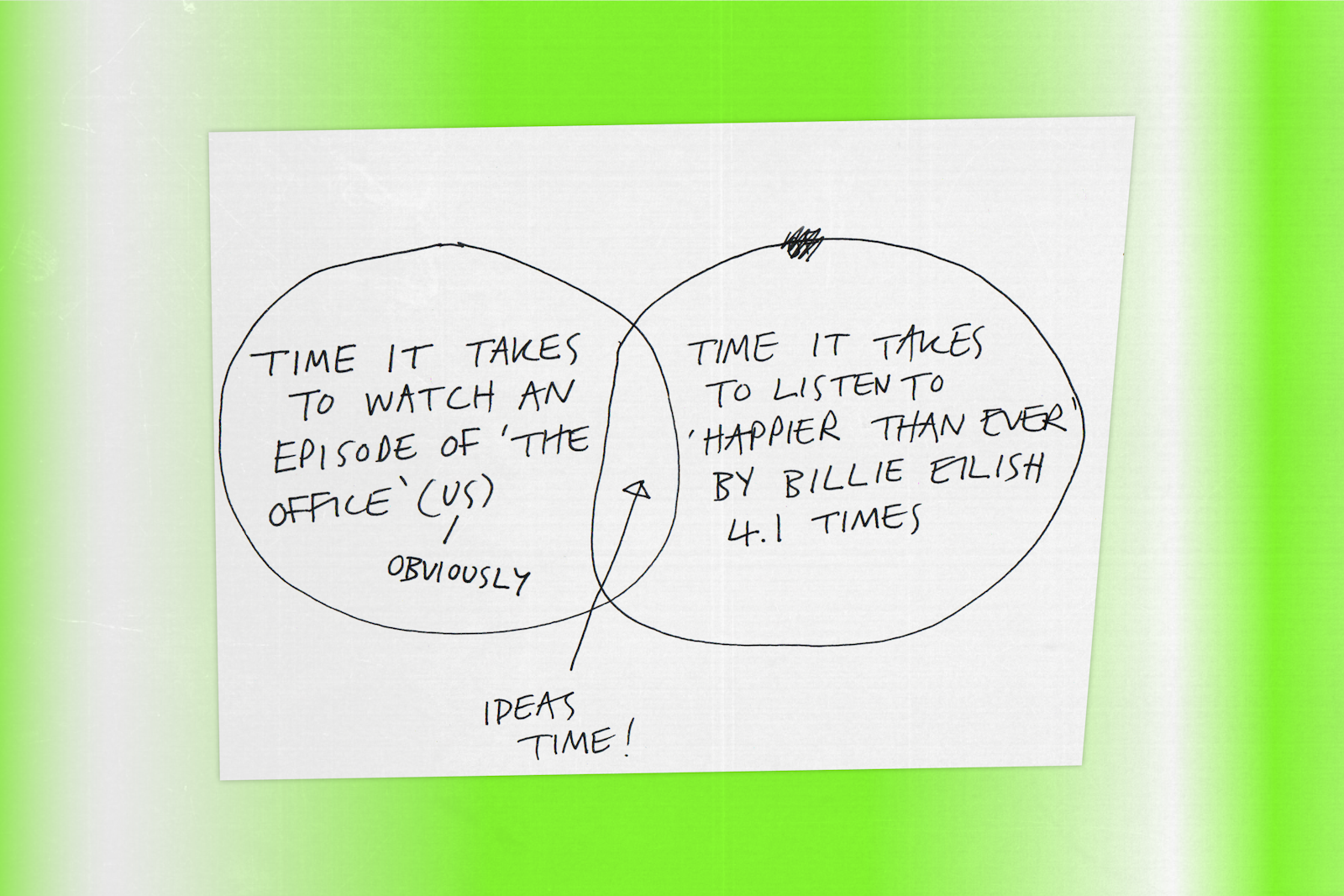
4. Sleep more
You’re probably tired of hearing this one by now, but a decent eight hours (at least!) will give you the beans to go out into tomorrow and give it your best shot. Any less and you’re doing yourself a disservice.
5. Say ‘no’ more
In my creative process, saying no to a request (if it’s reasonable to do so) means I can have a little more time on other tasks and make those better. And of course, the aim is to always make the work as good as it can be.
6. Say ‘yes’ less
The same point as above, but written in the opposite way because it seems clever. (I just want to give this one extra emphasis.)
7. Remember to use the Eisenhower Matrix
The Eisenhower Matrix is a productivity, prioritisation and time-management tool, which can be helpful when looking at your workload to decide how and when to do your tasks (and whether to do them at all). Is it urgent, and is it important? Do it now. Is it not urgent, but still important? Do it later.
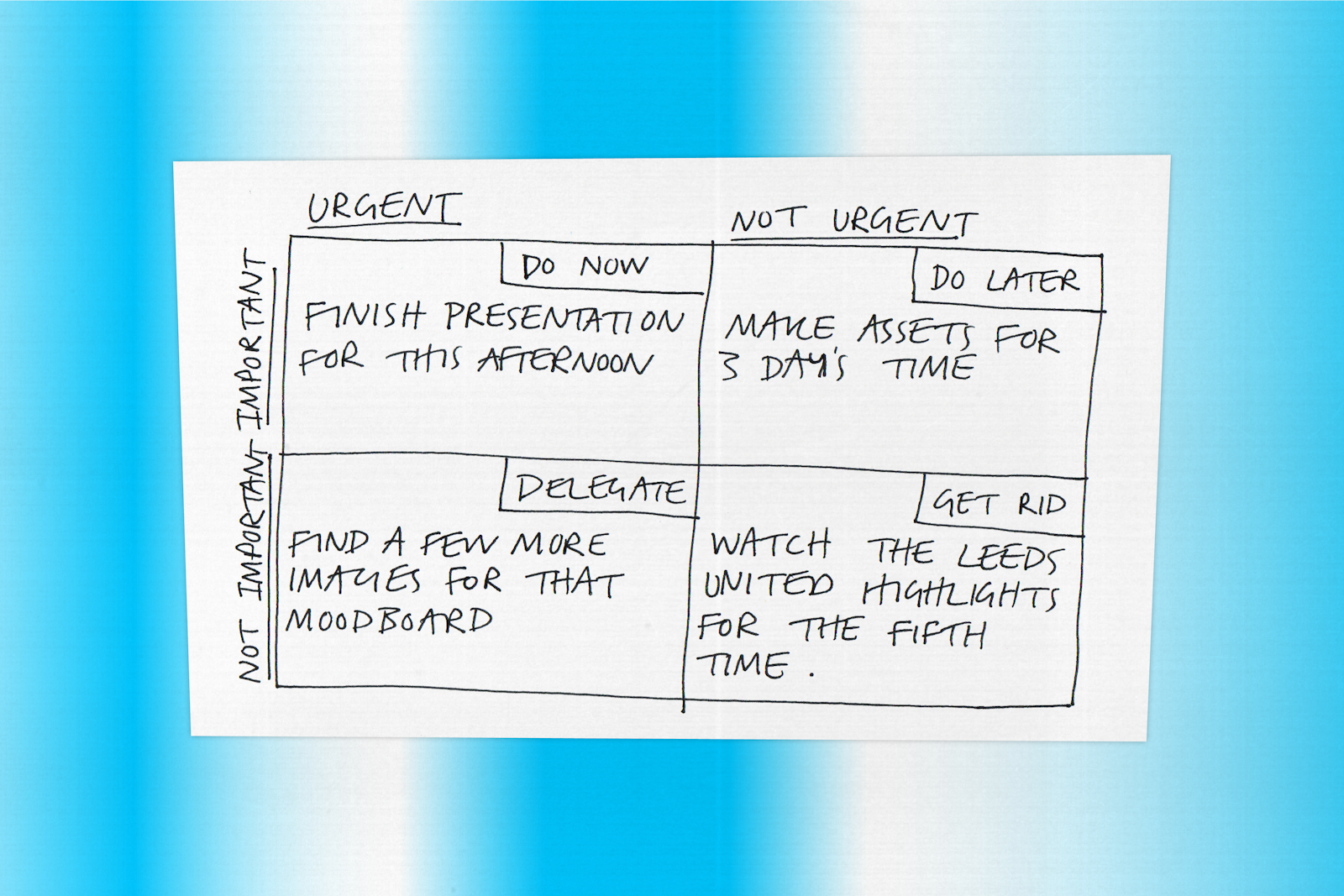
8. Try not to try
Try taking work a little easier and see how it turns out. It might all feel just a little more enjoyable.
9. It’s OK to not know what you want to be
Not knowing is an intrinsic part of the creative process. We all start every project not having a clue and, hopefully, by the end, we figure it all out. This approach should be applied to your creative career, too. It’s OK to not know if you’re a graphic designer, an art director, or a photographer – just try to enjoy the process and trust that it will all work out.
10. Drink more water, you prune
It sounds ridiculous, but it will improve every single aspect of your entire year. Especially if you love spending time in bathrooms.
11. Exercise your body
If you can, take some time – however short – to get your heart rate up and fill every corner of your lungs with air. It forces you to think about something other than work for a while and makes every cell in your body feel happier. It also means you can eat more biscuits without guilt.
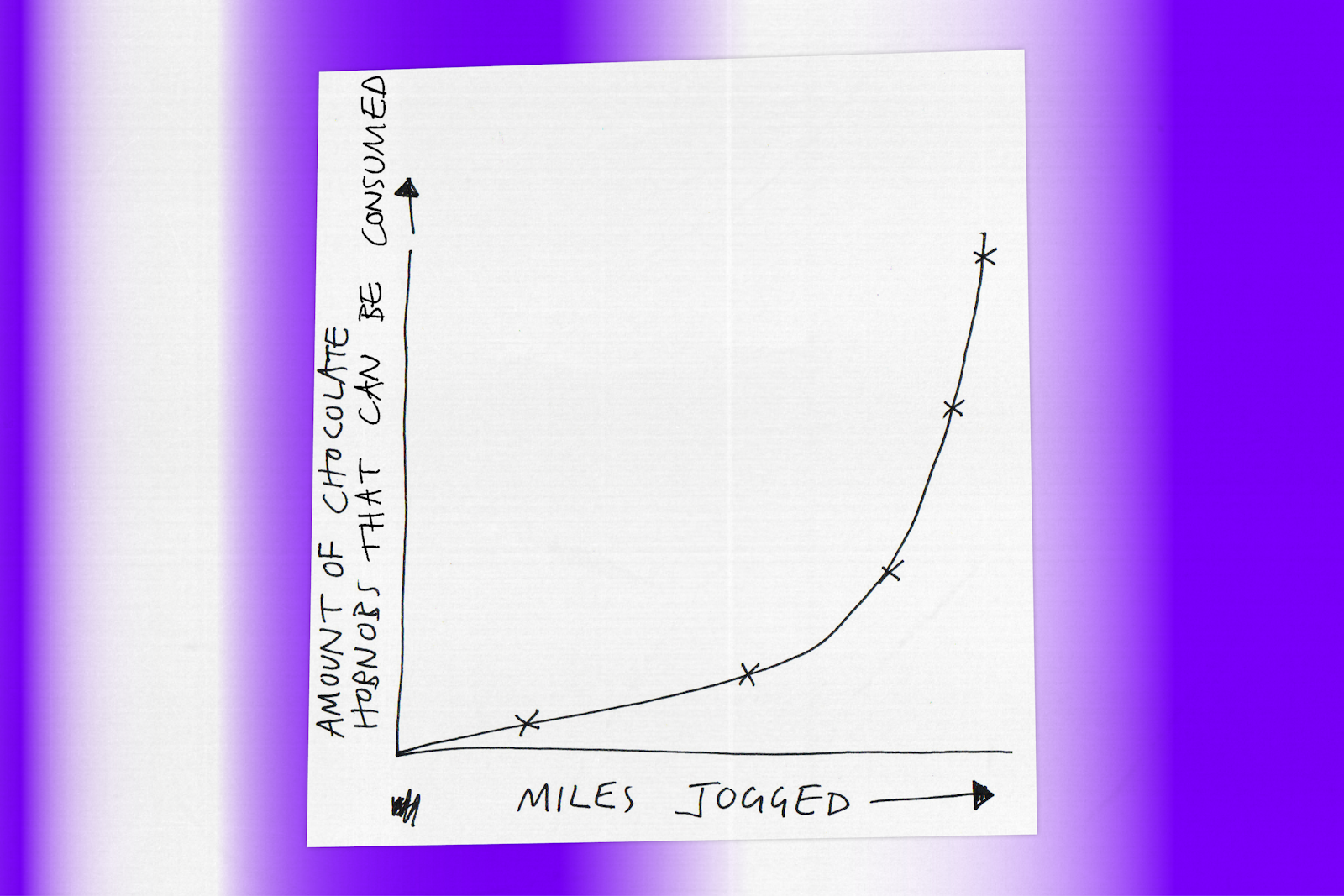
12. Exercise your mind
A little mindfulness really makes you think. Meditation is a really helpful tool to understand how you’re feeling. Is your brain a little too busy from juggling a few different projects? Are you feeling nervous about that task you’ve got to do tomorrow? Taking just five minutes every now and then to look inwardly and figure out your emotions can help bring a bit of clarity to the creative process.
13. Turn off properly
By this I mean try to turn yourself off at weekends and evenings, but also literally turn your computer off. Doing this has a magical power to make you feel free.
14. Be honest with yourself
You know deep down how you’re really feeling about your creative work. You owe it to yourself to listen to those feelings rather than neglect them. For example, are you trying to shoehorn an idea into a brief, but it’s not really fitting and just adding unnecessary stress? We’ve all been there. Listen to yourself, then do something about it if you don’t like what you’re hearing.
15. Laugh, lol
Yes, climate change is terrifying and yes, the cost of Freddos is through the roof. The world is scary, but that doesn’t mean you’re not allowed to laugh – in fact, to laugh is the ultimate act of protest, if you think about it.
16. Doing nothing is doing something
Rest is productive. I have nothing more to say on this.
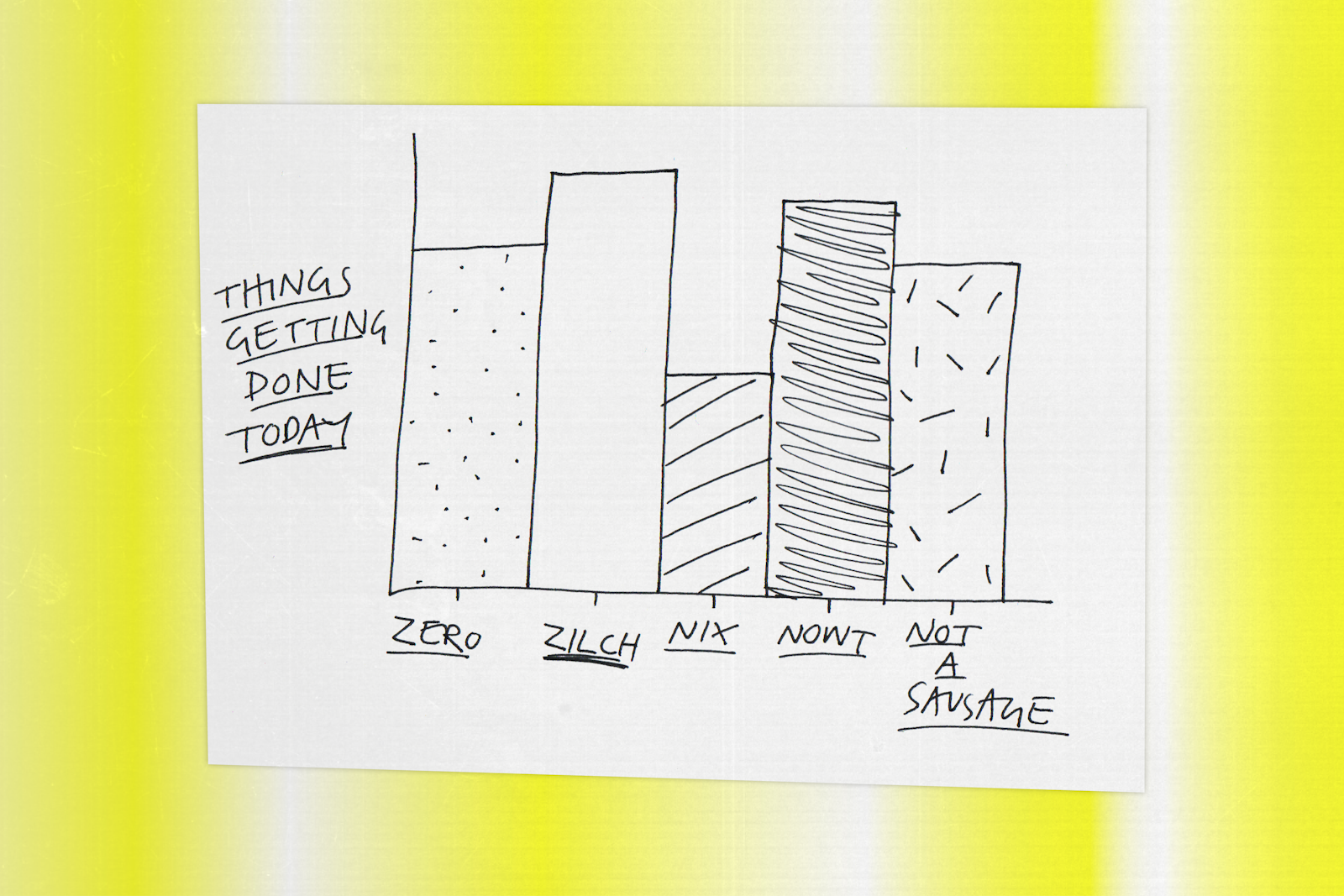
17. Set your own criteria for what success looks like
Being successful doesn’t have to be about getting Instagram likes on your work, or earning loads of money as a freelancer. If you decide that success in your work means making people laugh, that’s cool too.
18. Listen to your cravings
Whether it’s a subtle underlying feeling that you need to change jobs, or that you just fancy some strawberries, succumb to your desires. Doing what you want to do will make you the happiest, most satisfied and fulfilled creative since that bloke called Bob who paints those landscapes.
19. Being comfortable should make you feel uncomfortable
Sure, there’s a time and a place for feeling comfortable in your job and creative life more generally, but that comfort shouldn’t last. If you’ve been comfortable for a while now, be brave and step out of it.
20. Make a choice
If you’re torn between two options, just make a choice. Whatever choice you make, you can always change it – and at least then you’ll know what’ll happen.
21. Look at the trees
Whatever you’re going through, they’ve been through it all.
22. Bad is good
You need the bad times to appreciate the good times.
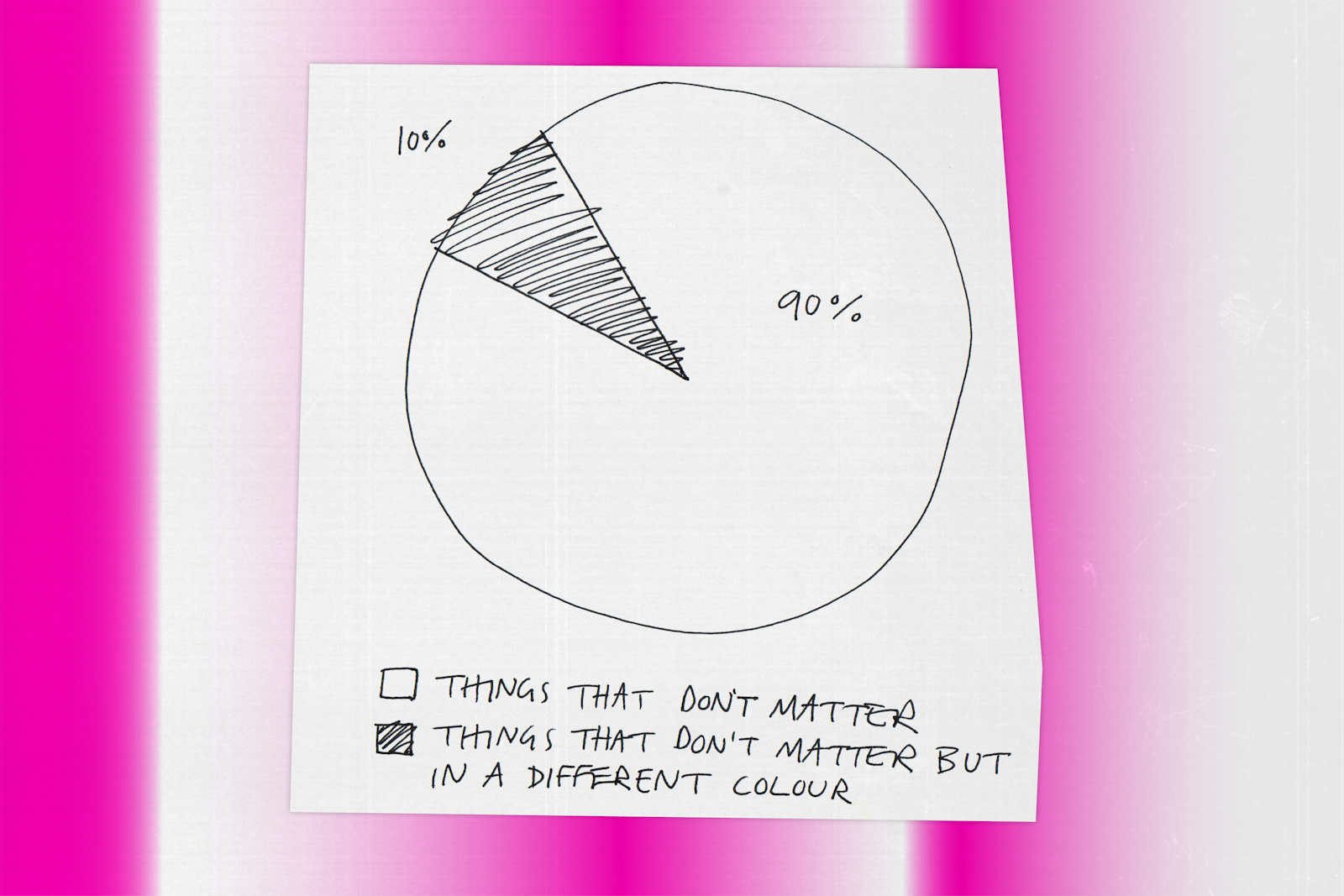
23. Nothing really matters
By this, I mean that nothing in the creative world really matters, even if it feels like a life and death situation. So what if you have to push the deadline back by a couple of days? Your health is more important than any burnout, stress or anxiety the creative world can throw at you.
Written by Adam Morton-Delaney




